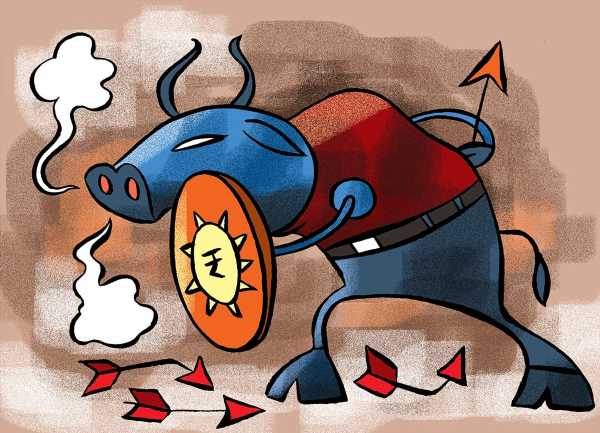‘El Nino impact an immediate concern to markets’
‘Geopolitical risks and their impact on oil prices, if any, are another concern for global markets, particularly for India.’
Unmesh Kulkarni, managing director and senior advisor at Julius Baer India, in an in-person chat with Puneet Wadhwa/Business Standard in Mumbai, says more clarity on market sentiment will emerge possibly around November/December, depending upon the state election calendar.
Are markets still fearing a global recession?
The probability of a recession in the US has now increased to about 50 per cent (10-20 per cent until January-February).
It, however, remains to be seen whether it will be a soft or hard landing.
The uncertainty surrounding this will impact global market sentiment, and investors cannot simply isolate themselves from the consequences.
The markets are, in a way, aware of the situation and pricing in some risks to growth.
What has triggered the sudden change in market sentiment in India?
India has emerged as a favourite destination for investors amid global developments, and the growth prospects here are catching the attention of many.
The Indian economy has been resilient, managing the interest-rate cycle well without any major setbacks, unlike some other parts of the world.
We have yet to experience a noticeable slowdown and seem to be at the peak of the current interest-rate cycle.
Another important factor to consider is the strength of the US dollar.
We have seen a structural bull market for the dollar for several years.
This has not only impacted India but also other emerging markets over the past decade.
The flows into the broader EM basket were affected as the dollar remained strong.
However, now there is a sentiment that the dollar’s strength may weaken, considering the current state of the US economy and other factors.
This could bring some relief and optimism for flows into EMs.
Until China settles down and gains more confidence from global investors, India is likely to benefit.
What are the risks the market has not priced in yet?
For one, the possibility of a worse-than-expected global slowdown. Back home, the risk associated with El Nino and its impact is an immediate concern.
Geopolitical risks and their impact on oil prices, if any, are another concern for global markets, particularly for India.
You missed out on the political risk. What if the current government does not return to power after the general elections in 2024?
Elections have a limited long-term impact on markets unless there is a significant strategic change in the political thought process.
At best, they act as a sentiment driver in the short term and cause market fluctuations, whether it be corrections due to disappointment or euphoria in the case of positive outcomes.
However, it is still too early to gauge the impact, as the elections are about a year away.
More clarity on market sentiment will emerge, possibly around November/December, depending upon the state election calendar.
During this time, there could be some volatility.
Nonetheless, these short-term reactions should not define the overall trend, as studies have shown that elections do not significantly impact the market in the long run.
While sentiment effects should not be ignored, underlying structural factors will continue to play a more significant role.
Banking is becoming a crowded trade now. What is the next emerging theme?
Infrastructure-led initiatives, particularly those focused on capital expenditure (capex) and manufacturing, including cement and engineering, procurement, and construction, are expected to do well.
Sectors such as construction and real estate are also experiencing a rally after a prolonged period.
These sectors began their resurgence two years ago, and as their order books grow with more capex invested in increasing capacities, they are likely to flourish.
However, it is worth noting that market returns often come in a short period of time, typically within three to four months.
Those who miss the initial wave often enter the market later, at higher valuations.
Nonetheless, the underlying story remains intact, especially in infrastructure.
Urbanisation is another theme to consider.
Growth versus value. Where are you leaning towards?
Globally, there is also a classic value-versus-growth dynamic at play.
Last year, especially in the US, value stocks outperformed growth amid rising interest rates and some derating of multiples for growth stocks.
This year, the trend seems to be reversing, leading investors to favour stocks with predictable earnings, including defensive sectors like information technology and health care.
Our global experts suggest that it’s better to take shelter in defensive stocks than cyclical ones until a more structural uptrend emerges later.
A similar pattern can be observed in India, where value stocks, including certain cyclical and public sector names, have outperformed growth stocks.
This trend started last year and persists.
Funds with a pro-growth focus and high-quality earnings have underperformed, while those leaning towards value and cyclical stocks have seen better results.
This trend may continue for a few more months. But as the realisation sets in, sectors like IT and pharmaceutical may exhibit some contrarian behaviour.
Feature Presentation: Aslam Hunani/Rediff.com
Source: Read Full Article

